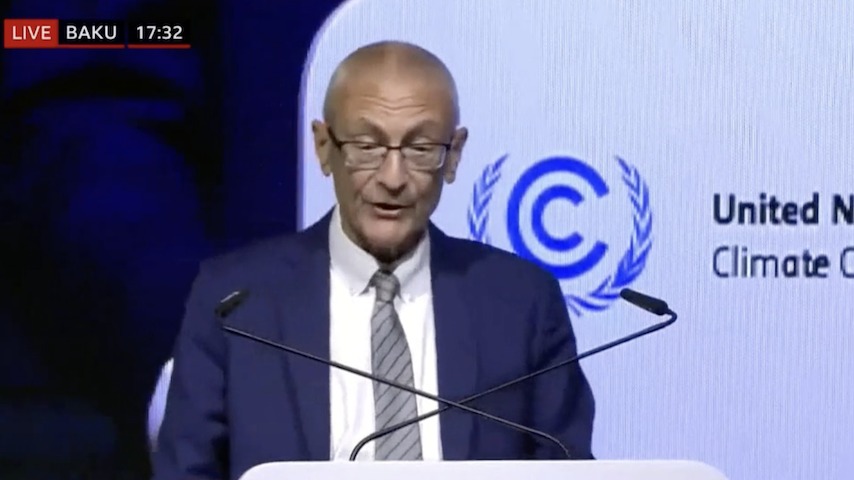COP29: I Guess We’re Doing This
Screenshot via BBC
Keeping up with the pre-COP29 news has not been an uplifting experience. So after all the various lowering of expectations and shrugging of shoulders and outright scandals leading up to the world’s most important annual climate change conference, one might be forgiven for feeling a tad jaded about its prospects. But still, here we are: the delegates are now gathered in Baku, Azerbaijan, to try and agree on the next steps forward in dealing with the world’s most important crisis. Let’s do this, I guess.
The main goal here is to set a new standard for international climate finance. In 2009, the developed world pledged to give $100 billion per year starting in 2020 to poor countries in order to both adapt and build out clean energy infrastructure; they managed it a few years late (probably), with all sorts of awful caveats around interest rates and so on, but in the 15 years since the pledge it has become blatantly clear just how woefully inadequate that number is. As the COP starts, the Climate Action Network — a coalition of hundreds of climate-related organizations across 130 countries — has called for dramatically increased ambition for the new pledge, starting at an eye-popping but reasonable $5 trillion.
“We are asking for the down payment of a very large debt,” said Tasneem Essop, CAN’s executive director, according to The Guardian. “We know the debt is much larger, but $5 trillion is what we come here to demand.”
Meanwhile, the incredibly ugly, malevolent, bloated, and catastrophically destructive elephant in the room is already getting attention. At a press conference on Monday, President Biden’s senior adviser for international climate policy John Podesta tried to offer reassurance that Donald Trump’s reelection will not utterly undermine global climate progress. He said that regardless of who is in office the U.S. will “continue to reduce emissions, benefiting our own country and benefiting the world.”
This is, of course, not entirely convincing, given the stated climate platform of the incoming president. There are some things largely out of Trump’s control — the good-and-still-improving economics of renewable energy, red states who have already greatly benefited from climate policies like the Inflation Reduction Act and would like to continue to do so — but an overall policy of “drill everywhere, deregulate everything” is not going to flatter the American emissions bottom line.
Advocates and activists are urging Biden to use his last couple of months in office, as well as his negotiating position at COP29, to set up some sort of bulwark against the oily venality of the next administration.
“Climate diplomacy on a boiling planet doesn’t stop for a climate denier,” said Ben Goloff, a senior campaigner at the non-profit Center for Biological Diversity’s Climate Law Institute, in a press release on Monday. The group says Biden should fast-track rejections of various large fossil fuel projects at home, appoint as many judges as possible to help protect various policies, and commit in Baku to paying a fair share of that massive debt owed to the developing world.
“Trump’s reelection is a stark reminder that we cannot waste a single day in the fight for climate justice,” said Allie Rosenbluth, of Oil Change International. “While Trump will soon be in the White House again, he cannot stop the global momentum toward a fossil-free future.”